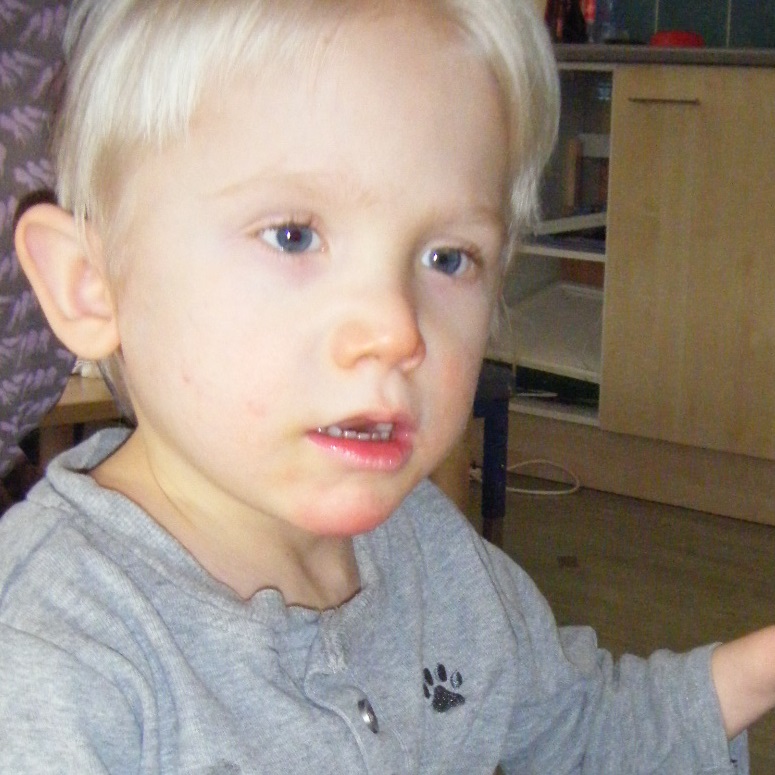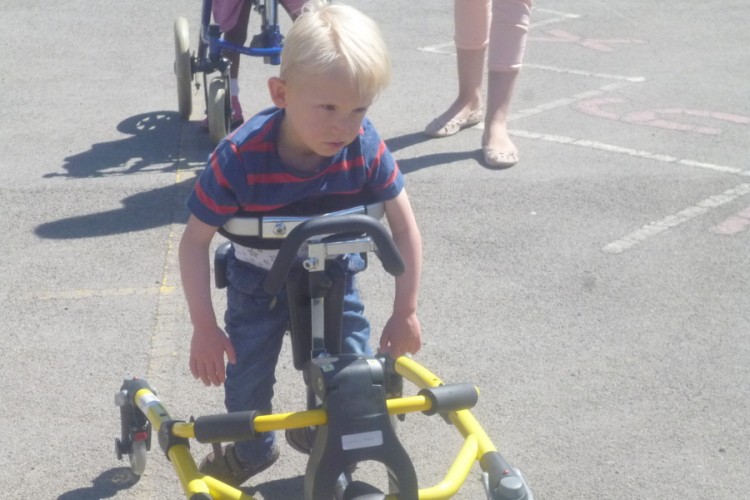I always get a bit tongue-tied when someone asks what’s wrong with my 4-year-old son, Gabe.
You see, we don’t know what’s “wrong” with him. He’s undiagnosed with a lot of common medical issues.
My usual answer is that he has global developmental delay (GDD). This is the only clinical description available to us that sums up the bulk of his ongoing medical issues. But to the man on the street, it doesn’t describe much of anything at all.
Global developmental delay can even sound like a friendly term. It describes a delay in development, but it doesn’t scream a life-long problem. In fact, it whispers hope because a delay by definition offers a promise of catching up. Right?
Not quite.
Here are six things I’ve learned after our experience with GDD:
1. Will my child with global developmental delay catch up?
This is probably the first thing everyone Googles when a doctor mentions GDD. There are some children who can catch up with the help from a physiotherapist, occupational therapist or a speech and language therapist. With good programs and lots of blood, sweat and tears, progress can be made. You will probably have a love/hate relationship with therapy, and it can take a while to find the right one.
Some children, however, won’t catch up. They might make significant strides with therapy to achieve their full potential, but there is no happy ever after and skipping off into the mainstream sunset. After nearly five years, we have accepted our child falls into this camp.
2. Brace yourself for tests.
Testing can be a bit tough. You might have an initial development assessment with a lot of different therapists over a period of weeks. This will rule autism or a language disorder in or out. After this, doctors are going to want to start running some tests. The conditions may scare you to death. I barely survived this part myself, but I did survive, as did a lot of my friends. And more importantly, our children are thriving still. Expect tests for hearing and vision, thyroid function, screening for inborn errors of metabolism, EEGs for epilepsy, MRI brain scans and genetic screening. A useful flow chart is available here.
3. Reach out to your friends and family.
The testing period can be an emotional roller coaster, and you’ll need as many people as possible to weigh that cart down so it doesn’t fly off the rails. Plus, when the dust settles, you’ll want your friends and family back for support. They’re not always going to get it right, but I bet you they will try their best. And sometimes (gasp!), they will have their own stuff to deal with.
4. Birthdays can be tough.
Remember all of those things you looked forward to when you were pregnant. Birthdays were right up there with Christmas. The cake, the party, the presents. You wanted to make it so amazing that your child will remember it forever. But then things didn’t exactly according to plan with GDD in your life. When your child has a delay, the birthday can serve to remind you that the gap between them and their peer group just got larger. It’s a bittersweet moment. I was a mess for Gabe’s first two birthdays; it just felt so sad and unfair.
They have gotten easier, though, and when he turns 5 in two weeks, we will quietly celebrate this milestone and how far he has come. But I won’t lie, when he opens yet another baby toy instead of a bike, a kite or a scooter, a bit of my soul will curl up and die. At the risk of sounding like a party pooper, I am always a bit glad when his birthday is out of the way for another year.
5. Recognize happiness can be as fragile as a house of cards
You can be the most positive person in the world. An eternal optimist. Good for you. But if your child has GDD, no matter the severity, know that at some point something will knock you down and that’s OK. This is a fragile sort of life and most of us are just feeling our way in the dark.
6. Meet your children where they’re at, and everything will be OK.
Life will settle back down if you let it. Day-to-day, GDD isn’t all bad. In fact, you will largely forget it’s part of your life. Yes, you will linger long (and longer) again in each stage.
At 4 years old, Gabe is more like a 12-month-old. I love that he gets excited by ducks in the park and sometimes falls asleep in the nook of my arm on a windy Sunday. I obviously don’t love the night-time awakenings as much. But if you take the pressure off them and yourself, watching them unfold at their own pace can be a magical thing.
I have to say, hand on heart, that some of my favorite moments in my life have come from the simple gifts Gabe has given me. A surge of pride and sense of well-being swept over me when I watched him cross the finish line in his walking frame with no assistance from his teachers at his school summer sport’s day. And because of him, I’ve learned to take life one day at a time and not look too far ahead. A slower pace of life is good for the soul.
As the saying goes: Everybody wants happiness, nobody wants pain, but you can’t have a rainbow without a little rain.*
*There’s another thing you don’t know. You will now collect cheesy inspirational sayings where you once collected shoes or football stickers. It happens to us all no matter how cool and trendy we used (to pretend) to be.
Follow this journey on Complicated Gorgeousness.


